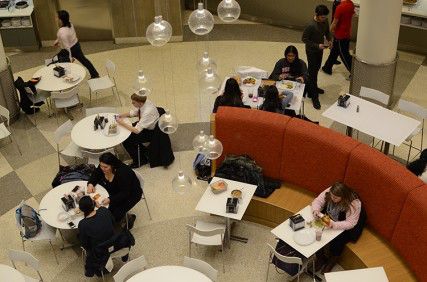
Many college-aged American students are blaming their institutions for their rising student debt, according to a recent study released to the Huffington Post by The Institute of Politics at Harvard University.
Forty-two percent of young Americans blame their colleges and universities for their rising student debt, according to the study. Experts in the Huffington Post article cited ongoing construction and expensive amenities at universities as reasons behind students’ blame. 30 percent of surveyed students, however, blame the federal government for their debt.
Some Boston University students said new projects add to the overall debt its student body faces.
Meghan Eppinette, a Sargent College of Rehabilitation and Health Sciences sophomore, said new and planned amenities and construction projects, such as Student Village III and Marciano Commons at 100 Bay State Road, are not necessary as the facilities around campus are already suitable for students.
“It’s not worth it,” Eppinette said. “It’s more about how the students are. Sure, how nice BU is [matters], especially Marciano Commons, but that’s not the main thing that attracts people here. It’s more like an added bonus.”
According to BU’s 2013 to 2023 Institutional Master Plan, the University plans to build a Student Village III, which will house an additional 523 students on campus upon completion. The School of Law building is currently undergoing renovation and the Sumner M. Redstone building is being constructed. There are also plans to renovate Myles Standish Hall and Myles Annex in the near future.
BU economics professor Bart Lipman said student debt has been on the rise all over the United States in recent years. The increase in national student debt has directly impacted the economy in a negative way, he said.
“If there is a lot of debt in the economy, people find it much harder to spend, and you obviously have to save more if you have debt that you have to deal with,” Lipman said. “And if those people don’t have money to spend, then this slows the economy down.”
Sixty-eight percent of respondents in the study view student debt as a major problem for young people in the United States. Alternately, 21 percent of respondents said it was “a minor problem,” while 2 percent see student debt as “not a problem.”
Lipman said inflation has made employing faculty and providing facilities on campus more expensive, and has therefore driven up tuition rates. However, he said institutions such as BU must continue to invest in the quality of their faculty and facilities in order to compete with other top universities.
“A lot of people employed at universities’ health insurance costs have been rising very rapidly,” Lipman said. “And the issue around new buildings is an interesting one because what happens is the schools have to compete in terms of having nice facilities because that’s what brings students in, but it drives up costs too, so it’s kind of a catch-22.”
Richard Keating, a College of Arts and Sciences sophomore, said though BU could be more accommodating with financial aid for their students, the high tuition rates make sense given the country’s current economic climate.
“I’m on financial aid because tuition [at BU] is astronomical,” Keating said. “It’s [tuition rates] definitely scary because in this day and age, if a degree doesn’t segue straight into a good job to pay for student loans, people feel the need to go to grad school to have a good career and make money to pay off student loans.”
Alyssa Aaron, a School of Management senior, said the investments BU has made in its facilities has improved its reputation, and thus attracted better applicants.
“Speaking for SMG, the school’s reputation has gone up with better student feedback,” Aaron said. “I came to BU for the amenities and I like to take advantage of all of them to get my money’s worth … [BU] is actually working and doing a good job of recruiting higher level applicants.”
Ariel Bernberg, a College of Communication junior, said she would prefer lower tuition rather than upscale housing facilities on campus.
“I value the classes I take and the professors I have … the fancy façade of cool buildings is not what I want,” Bernberg said. “In terms of more student centers, building architecture and the new building on Bay State, it doesn’t mean as much to me. There are unnecessary things like finger scanning [at 100 Bay State]. That’s for glitz and glamour and for being a technological school.”
This is an account occasionally used by the Daily Free Press editors to post archived posts from previous iterations of the site or otherwise for special circumstance publications. See authorship info on the byline at the top of the page.



